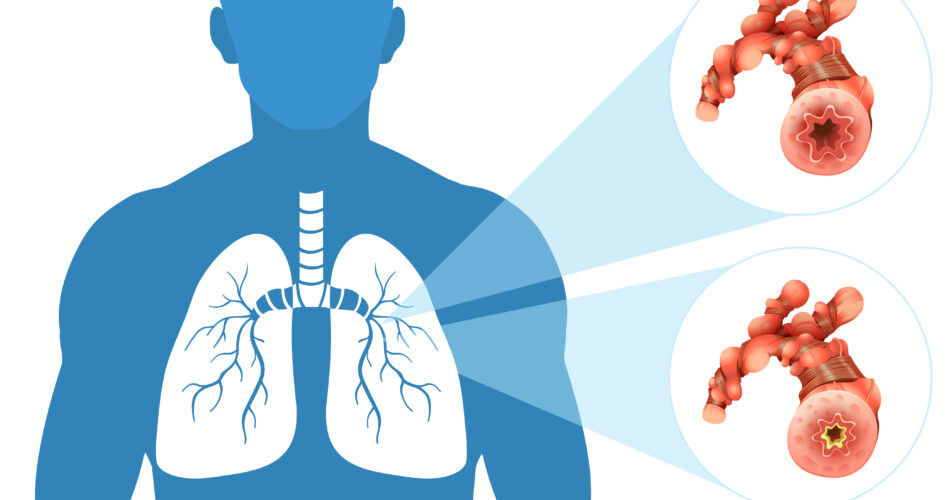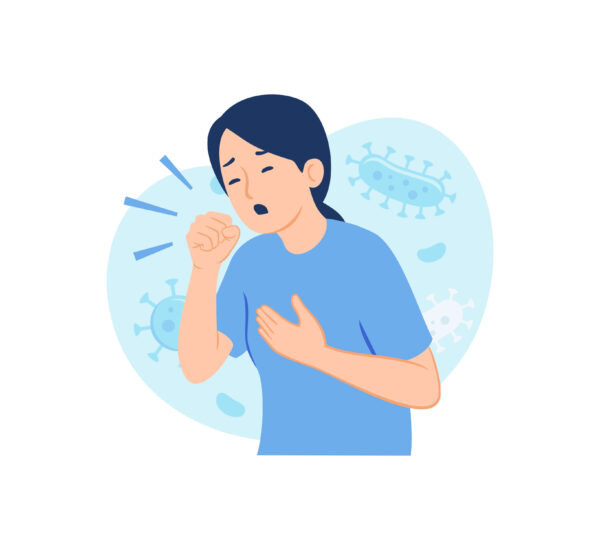When people are experiencing difficulty in breathing, it can be a result of numerous conditions. However, one of the most common scenarios that people consider is the occurrence of asthma. One way to verify the presence of this condition is through monitoring the manifestations of asthma symptoms.
If you suspect that you are suffering from a respiratory condition like asthma, this blog can help confirm that. In this article, we’ll discuss the basics of asthma condition, the known common symptoms, and when to visit a health expert for a consultation. Let’s begin!
What is Asthma?

Asthma is a chronic lung disease that causes the airways to become inflamed, making them narrow and causing difficulty in breathing. This inflammation is triggered by various factors, including allergens, irritants, infections, and exercise. When an asthma attack occurs, the airways are inflamed and become overly sensitive.
Moreover, when the bronchial tubes become inflamed and narrow, the patient can expect to feel breathing restraint making it harder for air to flow in and out. This ailment can occur at any age, although it is more common in children and tends to persist into adulthood. It is a long-term condition that requires ongoing management.
With its complex nature, anyone can be susceptible to asthma, especially with environmental triggers and other contributing factors that can develop and exacerbate symptoms.
While asthma is a chronic condition that requires ongoing management, with proper treatment and lifestyle modifications, most people with asthma are able to lead normal, active lives. It is important for individuals with asthma to work closely with their healthcare team to develop a personalized treatment plan and to regularly monitor their symptoms to ensure optimal control of their condition.
Recognizing the Symptoms of Asthma
As mentioned, one way to verify that the patient has asthma is through checking the warning signs. The appearance of these symptoms are crucial for timely diagnosis and appropriate management. While asthma symptoms can vary from person to person, there are some common signs to look out for.
Common Symptoms of Asthma
The most common symptoms can range from mild to severe and may come and go. The symptoms may include the following:
- wheezing
- coughing
- shortness of breath
- chest tightness or pain
Less Common Symptoms of Asthma
There are some less common symptoms that may also indicate asthma. These include the following:
- difficulty sleeping due to coughing or wheezing
- fatigue
- running out of breath
- decreased exercise tolerance
Contributing Factors or Causes of Asthma

In terms of understanding asthma, it is important to know the common asthma triggers to help manage the condition better. These factors are mostly found around us, which makes this condition difficult to handle. However, with the right guidance and medication, patients can conceal their coughing and difficulty in breathing due to asthma.
Here are the common factor that causes asthma:
- allergies
- dust mites
- pollen from trees, flowers, grass, etc.
Understanding Asthma Severity Levels
Asthma severity can vary from person to person and may change over time. Understanding the severity of your asthma is important for developing an effective treatment plan and managing your symptoms.
Generally, there are four levels: mild intermittent, mild persistent, moderate persistent, and severe persistent. These levels are determined based on the frequency and intensity of symptoms, as well as lung function tests. Let’s begin!
Mild Asthma: Symptoms and Management
People with mild asthma often don’t recognize they have the respiratory condition as it can persist without any early symptoms. Symptoms may be triggered by specific factors, such as exercise or exposure to allergens.
Common symptoms of mild asthma may include the following:
- wheezing
- coughing
- shortness of breath
- chest tightness
In general, mild asthma can be managed with quick-relief medications, such as short-acting bronchodilators, and a rescue inhaler for occasional use. These medications work by relaxing the muscles around the airways, allowing them to open up and improve airflow. It is important for individuals with mild asthma to have a rescue inhaler on hand at all times, in case of sudden symptom flare-ups.
Moderate to Severe Asthma: Symptoms and Management
Those with moderate to severe asthma may experience symptoms more frequently and may have more difficulty controlling their symptoms. Symptoms may occur daily and can be triggered by various factors, including exercise, allergens, respiratory infections, and exposure to irritants such as smoke or strong odors.
In addition to quick-relief medications, people with moderate to severe asthma may need to take long-term control medications, such as inhaled corticosteroids, to manage their symptoms and reduce inflammation in the airways. These medications work by reducing the sensitivity and inflammation of the airways, thereby preventing or minimizing asthma symptoms. It is important for individuals with moderate to severe asthma to follow their prescribed medication regimen consistently, even when they are feeling well.
When to Visit A Pulmonologist for Asthma Check up

If you find that your asthma symptoms are becoming more frequent or harder to control, it may be time to visit a pulmonologist for a comprehensive asthma check-up. A pulmonologist can assess your condition, adjust your medication regimen if needed, and provide guidance on managing your symptoms effectively. Remember, proactive management is key to living well with asthma.
Final Takeaway
Understanding the varying degrees of asthma symptoms is crucial in managing this respiratory condition effectively. While individuals with mild asthma can typically rely on a rescue inhaler for sudden flare-ups, those with moderate to severe asthma require a more comprehensive approach. This includes not only quick-relief medications but also long-term control medications like inhaled corticosteroids to reduce airway inflammation. Consistent adherence to prescribed medication regimens is essential, even during symptom-free periods.
As symptoms worsen or become harder to control, seeking guidance from a pulmonologist becomes necessary. Book an online consultation or visit the local health center for a health check up. Doing so will help you begin the early intervention and manage asthma immediately.
Asthma Knowledge Quiz
Test your understanding of asthma symptoms and management
Quiz Complete!
Consult with a pulmonologist to get personalized guidance for managing asthma symptoms.
Find a Pulmonologist


